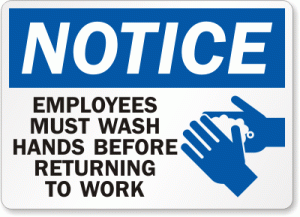“…Although blading and injecting marinades into meat add value for the beef industry, that also can drive pathogens — including the E. coli O157:H7 that destroyed Lamkin’s colon — deeper into the meat…if it isn’t  cooked sufficiently, people can get sick. Or die.
cooked sufficiently, people can get sick. Or die.
Big Beef and other processors are co-mingling ground beef from many different cattle, some from outside the United States, adding to the difficulty for health officials to track contaminated products to their source. The industry has resisted labeling some products, including mechanically tenderized meat, to warn consumers and restaurants to cook it thoroughly.
Three years ago, at age 87, Lamkin was forced to begin wearing a colostomy bag for the rest of her life after a virulent meat-borne pathogen destroyed her large colon and nearly killed her. What made her so sick? A medium-rare steak she ate nine days earlier at an Applebee’s restaurant.
Lamkin, like most consumers today, didn’t know she had ordered a steak that had been run through a mechanical tenderizer. In a lawsuit, Lamkin said her steak came from National Steak Processors Inc., which claimed it got the contaminated meat from a U.S. plant run by Brazilian-based JBS — the biggest beef packer in the world.
“You trust people, trust that nothing is going to happen,” said Lamkin, who feels lucky to be alive at 90, but beef companies “are mass-producing this and shoveling it into us.”
The Kansas City Star investigated what the industry calls “bladed” or “needled” beef, and found the process exposes Americans to a higher risk of E. coli poisoning than cuts of meat that have not been tenderized. The process has been around for decades, but while exact figures are difficult to come by, USDA surveys show that more than 90 percent of beef producers are now using it.
Mechanically tenderized meat is increasingly found in grocery stores, and a vast amount is sold to family-style restaurants, hotels and group homes. The American Meat Institute, an industry lobbying group, has defended the product as safe but recently said it can’t comment further until it sees results of an assessment by the meat safety division of the U.S. Department of Agriculture.
Read more here: http://www.star-telegram.com/2012/12/08/4469815/mechanical-tenderizers-linked.html#storylink=cpy







